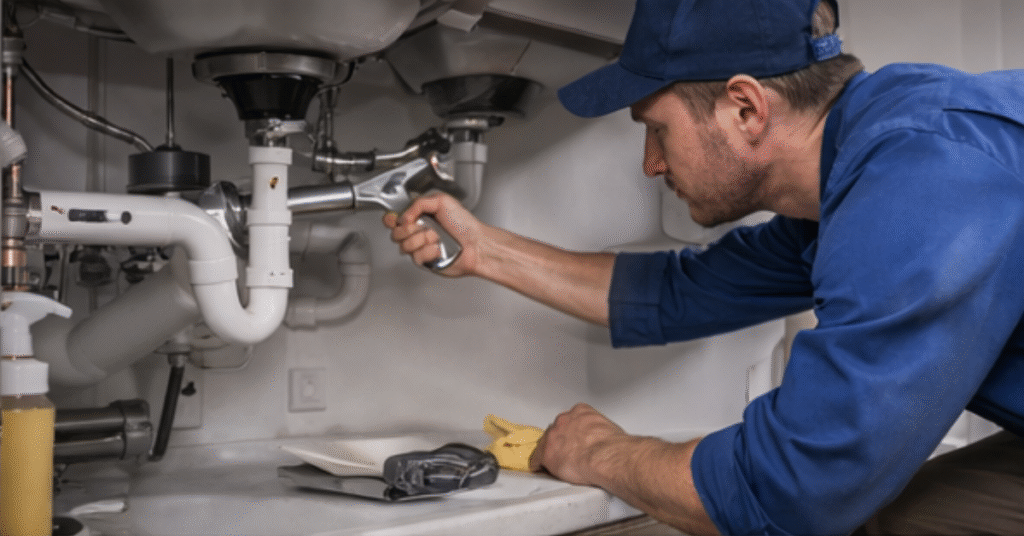
If you live in Redmond, WA, you’ve probably heard about the “hard water vs. soft water” debate—but what does it really mean for your home’s plumbing? Water quality plays a significant role in the long-term health of your pipes, appliances, and fixtures. Whether your water is hard or soft can determine everything from soap efficiency to pipe corrosion.
Let’s break down the differences, analyze Redmond’s water quality, and see how it could be silently damaging your plumbing system.
🚿 What’s the Difference Between Hard and Soft Water?
Hard water is water that contains high levels of dissolved minerals, primarily calcium and magnesium. These minerals naturally accumulate as water travels through limestone and chalk deposits.
Soft water, on the other hand, has few or no dissolved minerals and tends to be gentler on appliances and plumbing systems.
| Feature | Hard Water | Soft Water |
|---|---|---|
| Minerals | High (Ca, Mg) | Low |
| Soap Effectiveness | Reduced lather, soap scum forms | High lather, rinses clean |
| Impact on Pipes | Mineral buildup, clogs over time | Less buildup, but can be acidic if artificially softened |
💧 Is Redmond’s Water Hard or Soft?
According to Seattle Public Utilities and regional water quality data from the U.S. Geological Survey, water in Redmond is considered moderately hard:
- Redmond water hardness level: Approximately 35–50 ppm (mg/L) or 2–3 grains per gallon
- Source: USGS Water Hardness Data
This places Redmond’s water near the borderline between soft and hard, meaning it may still cause minor scale buildup over time—especially in older plumbing systems or homes without any water treatment.
🛠️ How Hard Water Affects Your Pipes
Over time, hard water can:
- Create scale buildup inside pipes, which narrows flow and reduces water pressure.
- Damage water heaters, especially tank systems, by allowing mineral sediment to collect at the bottom.
- Clog showerheads and faucet aerators, reducing fixture efficiency.
- Cause valves and seals to wear prematurely, increasing the risk of leaks.
While Redmond’s water isn’t considered extremely hard, long-term exposure without treatment can still result in costly plumbing repairs—especially in areas with older galvanized pipes.
🔎 How to Tell If Hard Water Is Damaging Your Plumbing
Here are some warning signs to watch for:
- White, chalky buildup on faucets and showerheads
- Water spots on clean dishes or glassware
- Reduced water pressure
- Soaps and shampoos don’t lather well
- Frequent appliance maintenance or water heater issues
If you’ve noticed any of these issues in your Redmond home, it may be time to inspect your water quality and your plumbing system.
🧠 Should You Install a Water Softener in Redmond?
While Redmond water isn’t severely hard, some homeowners choose to install water softeners or point-of-use filtersto:
- Protect pipes and appliances
- Improve water efficiency
- Reduce energy use in water heaters
- Eliminate mineral buildup
Softening systems may not be necessary for every home, but they are highly beneficial in homes with older plumbingor multiple mineral-related issues.
✅ What Can You Do?
If you’re concerned about mineral buildup or water quality in your Redmond home, the first step is a professional plumbing inspection.
👉 At Einstein Pros – Redmond, we offer:
- Pipe inspection and descaling
- Water heater maintenance
- Water quality testing
- Expert plumbing consultations tailored to Redmond conditions
We’re here to help you understand your water, protect your home’s plumbing system, and save money long-term with smart solutions.
📌 Final Thoughts: Trust Einstein Pros
While Redmond doesn’t have the hardest water in Washington, even moderately hard water can cause damage over time. Recognizing the signs early and taking preventive steps—like annual plumbing inspections or installing a softener—can save you thousands in repairs.
Want to know what’s really flowing through your pipes?
🔗 Schedule your plumbing check-up with Einstein Pros Redmond today and keep your water (and your pipes) running clean.
Sources:
